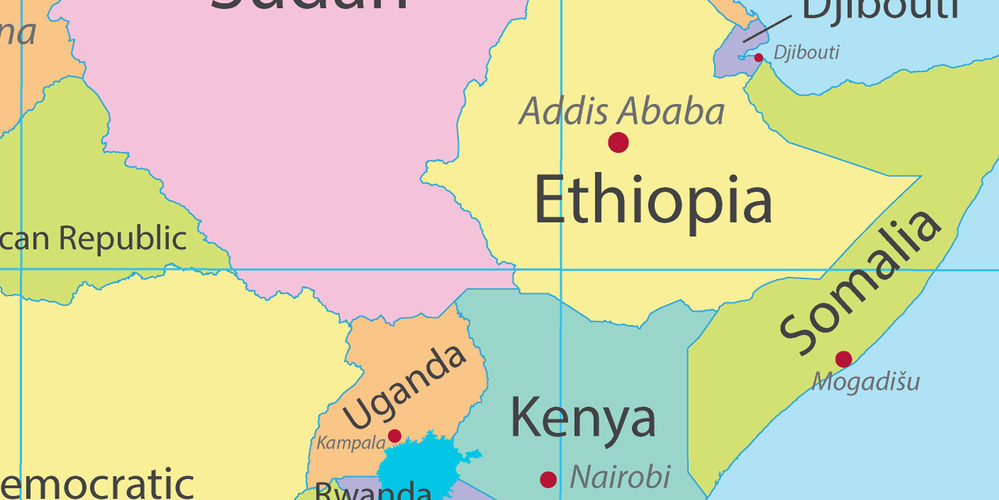Who killed Richard Malinga, a Baptist evangelist in Uganda?
That’s the question many people, including religious leaders and security officials in the country and elsewhere, are asking about the man whose lifeless body was recently found in Kayete Swamp in Akisim A village in Eastern Uganda.
Prior to that, Malinga had texted his pastor that he was surrounded by people believed now to be Islamic radicals.
Malinga, 36, was said to be on an evangelization mission at the time he met his death. His Baptist church in Pallisa District reportedly sent him on the mission with the hope he would succeed in winning more souls for God, something he was said to be good at doing.
Malinga, 36, was said to be on an evangelization mission at the time he met his death.
The pastor, whose identity is kept under wraps for security reasons, in a report published by Morning Star News, said he received a message from Malinga when he was cornered, and that after replying to him, he received no response.
“The evening of June 17, I received a short message from Malinga of being surrounded by the Muslims. I wrote back to him several times, but there was no response,” he said.
A resident who spoke on the condition of anonymity explained how Malinga’s body was discovered: “I heard a loud wailing at around 7:30 p.m. on the main road between Butebo and Alodot village near Kayete Swamp in Akisim A village situated in Butebo District. We dashed to the scene and found the victim in a pool of blood. We found the victim dead and tied with ropes.”
The Ugandan Police have begun investigating the matter. Meanwhile, those who knew Malinga mourn his demise.
“We as a church are very saddened for losing our active, devoted and committed evangelist who won many people, including Muslims, to Christianity,” Malinga’s pastor said.
Uganda’s Constitution allows for freedom of religion and belief and the right to practice any religion of one’s choice. Although the country is a majority Christian nation, cases of Islamic fundamentalism or violence are not new in the East African country. However, Muslims in the country also have raised concerns about being targeted or profiled as militants by non-Muslims.

Lela Gilbert
Lela Gilbert, an adjunct fellow at Hudson Institute’s Center for Religious Freedom and co-author of Persecuted: The Global Assault on Christians, recently wrote that in Uganda, “reports of anti-Christian violence … are increasing exponentially,” and “unlike the horrific massacres in Nigerian villages and churches or the mass beheadings in Mozambique, Ugandan attacks tend to target individual converts from Islam to Christianity.”
These attacks, she wrote, “are carried out by radical Islamists, encouraged by local Muslim clerics or terror groups like al-Shabab and ISIS-affiliates.”
Gilbert cited some of the violence against Christians in the country to include that of a 42-year-old father who left Islam to become a Christian only to have his hand cut off by Islamic extremists; the case of Musa John Kasadah of Maumo village who “was ambushed … as he tried to flee to safety with his family who had joined him in putting faith in Christ” as well as an evangelist who had held open-air events in Eastern Uganda and was killed by Muslim extremists.
According to the 2022 Report on International Religious Freedom on Uganda, “ISIS-affiliated ADF militants conducted several attacks, including an attack in June at a predominantly Christian school during which they killed 37 pupils and six other persons, and an ambush in which they killed two foreign tourists and their Ugandan guide in a national park in October.”
The report added that “following the school attack in Mpondwe near the border with the Democratic Republic of the Congo, media outlets reported members of the local Muslim communities feared reprisals.
“Media sources said the ADF frequently targeted Christians in its propaganda. Suspected ADF operatives made several unsuccessful attempts during the year to set off bombs inside churches.”
The report further revealed that Uganda’s population, at mid-last year, was estimated to be 47.7 million. Based on a 2014 government census, 82%of Ugandans identify as Christian, of which 39% are Roman Catholic, followed by Anglican at 32% and Pentecostal Christians at 11%.
The Muslim population, on the other hand, is reported to be 14%, although the Uganda Muslim Supreme Council disputes that figure, arguing that Muslims “are closer to 35% of the population.”
Other religious groups in the country, judged to be below 5% of the population, include adherents of the Church of Jesus Christ of Latter-day Saints, Baptists, Seventh-day Adventists, Orthodox Christians, Hindus, Jews, Baha’is, adherents of indigenous beliefs, and people with no religious affiliation.


